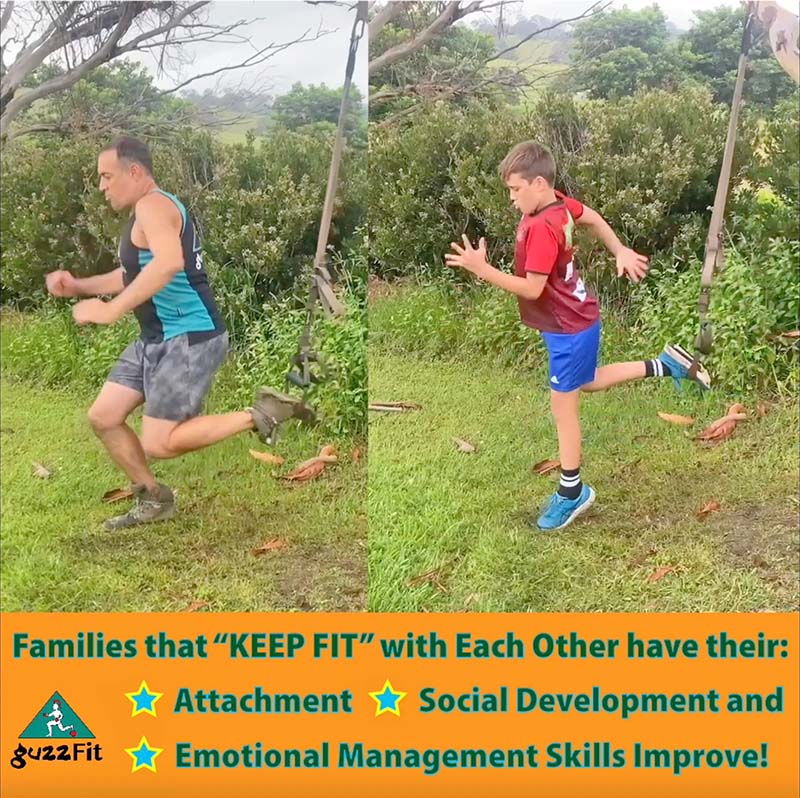Teenagers are notorious for not wanting to have conversations, however, the friendly competitiveness associated with a father and son ribbing each other about the number of reps they can do “non-stop” on evenings after exercising together is incredibly positive.
Families who keep fit with each other have their attachment, social development and emotional management skills improve.
Sport and exercise psychologist Jocelyn Penna explains: “Although downtime is important, many people spend far too much time inactive, so when families exercise together they gain the combined benefits of being together, growing together and encouraging each other to be active.”
Bring your child with you to a “FREE” Trial Fitness Training session with guzzFit this week!
Penna says there can be immense payoffs. “Families who are able to approach challenges together with an optimistic outlook can develop strong conflict-resolution skills and become more resilient,” she says.
Recent research from the University of Cambridge found that if parents were active, their children were 10 per cent more likely to work out.
“As a society, we have become more aware of health and fitness, so we are proactive in finding ways to exercise,” says performance and sports psychologist Michael Inglis.
“Parents want to be positive role models to their children.”
And with obesity levels continuing to rise, it’s never been more important for adults to model good exercise habits to their children.
More than one in four Australian children between five and 17 are overweight or obese, according to the Australian Institute of Health and Welfare, while the overall rate of overweight or obese adults increased from 56 per cent in 1995 to 63 per cent in 2015.









